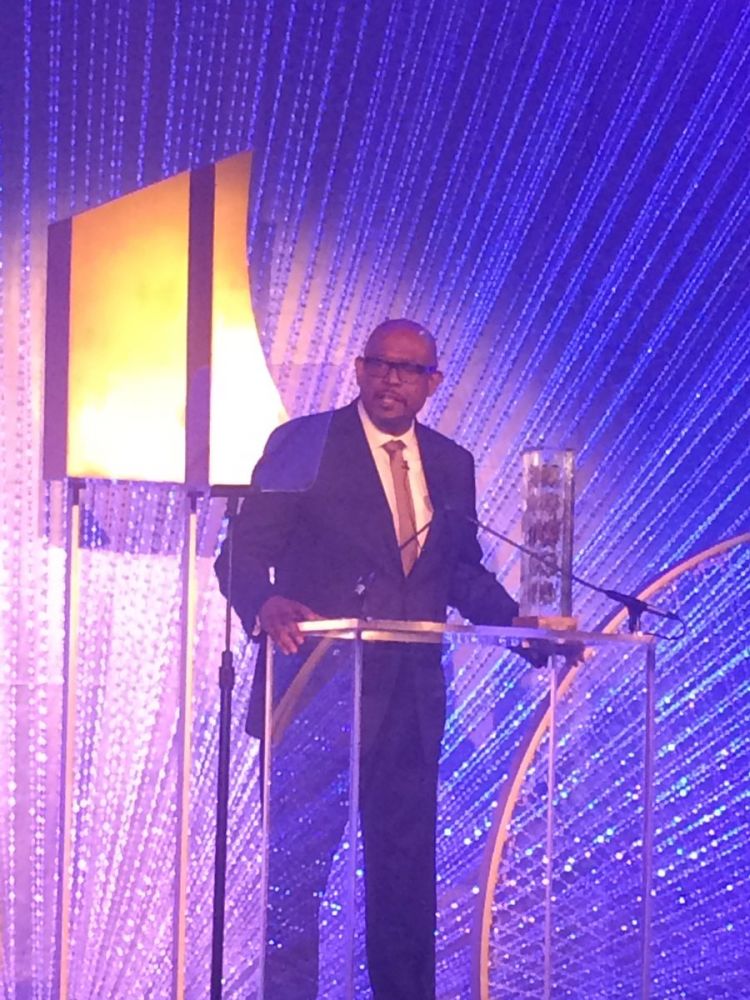April 5, 2019 – Last night, the Founder and CEO of the Whitaker Peace & Development Initiative (WPDI), Forest Whitaker, accepted The John F. Kennedy Center Award for the Human Spirit. In awarding him the Citizen Artist Award, The Center recognized Mr. Whitaker’s enduring impact on the advancement of arts and contributions to a culture of giving through philanthropy and service.

Central to this recognition was the exemplary dimension of his efforts to empower children and youths living in difficult contexts, either through WPDI or, formerly, through the President’s Committee on the Arts and the Humanities, a White House advisory committee on cultural issues. Forest Whitaker has also been an ardent promoter of Turnaround Arts, a national program of the John F. Kennedy Center for the Performing Arts founded in 2011 by the President’s Committee, under the leadership of former First Lady Michelle Obama. The program is based on the premise that high-quality and integrated arts education can strengthen school reform efforts, boost academic achievement, and increase student engagement in schools facing some of the toughest educational challenges in the country. Forest Whitaker contributed to the pilot phase of the program, engaging students and staff primarily at Findley Elementary School in Des Moines, Iowa, and later at Martin Luther King Elementary School in Compton, California.
In his acceptance speech, Forest Whitaker stressed his belief in the power of education to help youth become active and creative citizens. He explained that he had launched WPDI precisely “to empower youths to become peace and community builders in places all over the world that are touched by conflict, including in the United States. To create real change – whether it’s for a child soldier in Uganda or a troubled youth in Des Moines – you have to build trust and community. You have to engage young people as active partners in their own development. Considering youths as partners of peace and justice is a fundamental dimension of my work. This makes a significant difference, especially in contexts marked by poverty and conflict, where it often seems impossible for young people to be anything other than victims or perpetrators of violence.”
His closing words were a call to action in favor of youth that directly expressed the philosophy of John F. Kennedy: “It is our responsibility to bring them together and empower them so they can, in turn, start a movement of their own.”